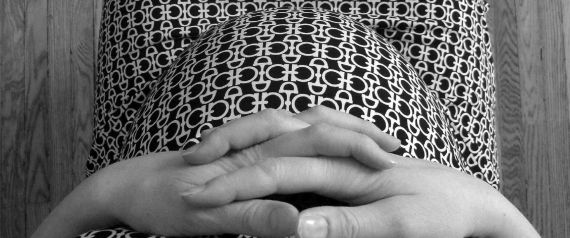https://www.yahoo.com/health/what-being-an-oldest-middle-or-youngest-child-115877654632.html
Written by:

What your birth order has to do with the way you are. (GIF: ABC)
Birth order isn’t the end all, be all when it comes to who you are as a person and how you interact with the world — but it certainly is a factor. There’s no shortage of research showing that being an oldest, middle, or youngest child has an impact on your personality.
In honor of National Sibling Day, we broke down the biggest ways your birth order seems to be associated with who you are as a person. Read on, and be sure to tell us in the comments how true the research seems to be for you.
The Firstborn
Being the oldest child in the family means going through a lot of firsts — and quite possibly failures — before future siblings come along.
First step. First word. First time-out.
The oldest children are often put through experimentation or test phases, when parents are still trying to figure out the goals they have for their children. While oldest children may have had a more strict — or at least watchful — upbringing, it also means they received a lot of attention because they had their parents all to themselves, Khadijah B. Watkins, MD, assistant professor of psychiatry in the Division of Child and Adolescent Psychiatry at Weill Cornell Medical College, tells Yahoo Health.
As a result, firstborns command more attention and approval from peers and colleagues and are more in tune with their surroundings.
Many world leaders are firstborn kids who are typically more driven and motivated, Watkins says. They are also extremely competitive, confident, organized, and strive for greatness.
A Norwegian study found that firstborns had a slightly higher IQ than middle or younger siblings, supporting the fact that they want to excel at everything they do, from landing a successful job to simply planning a vacation.
Are you an oldest child? You’re probably…
- Power-driven
- Successful
- Competitive
- Motivated
- Strong
- Responsible
- Confident
- Intelligent
- Rule keepers
Related: What Your Personality Reveals About Your Health
The Middle Child
It’s not always easy being the Jan Brady of the family, constantly reaching for a tiny spot in the limelight.
Middle children are often caught between the wiser, more experienced older child and the coddled, energetic youngest child. “As the middle sibling, you have to stick up for yourself and get crafty to get your needs met,” says Watkins. They’re forced to get creative in how they advocate themselves.
Most middle children tend to be social and surround themselves with friends and colleagues for support, which make them great networkers and entrepreneurs.
They aren’t going to argue or compete with the older or younger sibling, Watkins says. Middle children will adapt to any situation and try to mediate and act as a peacemaker during rocky situations.
Are you a middle child? You’re probably…
- Creative
- Social
- Excellent negotiators
- Empathetic
- People pleaser
- Resourceful
- Diplomatic
- Peacemaker
Related: Is Your Personality Type More (Or Less) Likely To Apologize?
The Youngest
The last-born sibling — also known as the “baby” of the family — enters into the familial hierarchy at the bottom of the pyramid, but is typically the most spoiled of all the siblings.
By the time parents have their last child, they know the drill — changing diapers is a piece of cake and teaching their child how to ride a bike is second nature.
Parents are also more lenient about certain things and tend to intensify how much they coddle, spoil, and protect the youngest child. Last-borns start becoming familiar with people doing things for them, so they are typically more demanding and impatient when things don’t go their way.
Youngest children often want their own way in life and seek to tailor things toward their wants and needs, says Watkins.
“They’re always questioning the system and asking why things need to be that way,” Watkins says.
This rebellious attitude also leads them to be more free-spirited, outgoing, and prone to taking more risks.
Like firstborns, last-borns also tends to be highly motivated and driven. They’re competitive as well, but in most cases, they won’t directly compete with their siblings – they’re more likely to take a different course or even move to a new geographic location, Watkins tells Yahoo Health.
And youngest children know when to throw out a good joke or two — a recent study found that last-borns are more funny and easygoing compared to their older brothers and sisters.
Are you a youngest child? You’re probably…
- Rebellious
- Competitive
- Driven
- Humorous
- Risk taker
- Outgoing
- Demanding
An Only Child
No siblings? No problem.
Only children may get an (unfair) characterization as being lonely and extra self-involved. But research actually shows they possess cooperativeness, leadership, and emotional stability at the same levels as those with siblings. And they also aren’t lonely, especially when you consider the fact that “lonely” is not the same thing as “comfortable with solitude.”
Plus, since they received the uncontested attention of their parents, only children tend to have a strong sense of identity and self-esteem.
“Onlies typically have strong personalities and know who they are because their needs aren’t overlooked, and they don’t compete for attention,” Erika Karres, author of Make Your Kids Smarter, tells Parents.
Read This Next: Introvert? Neurotic? The Most Common Personality Type In Your State Is…




Get Connected